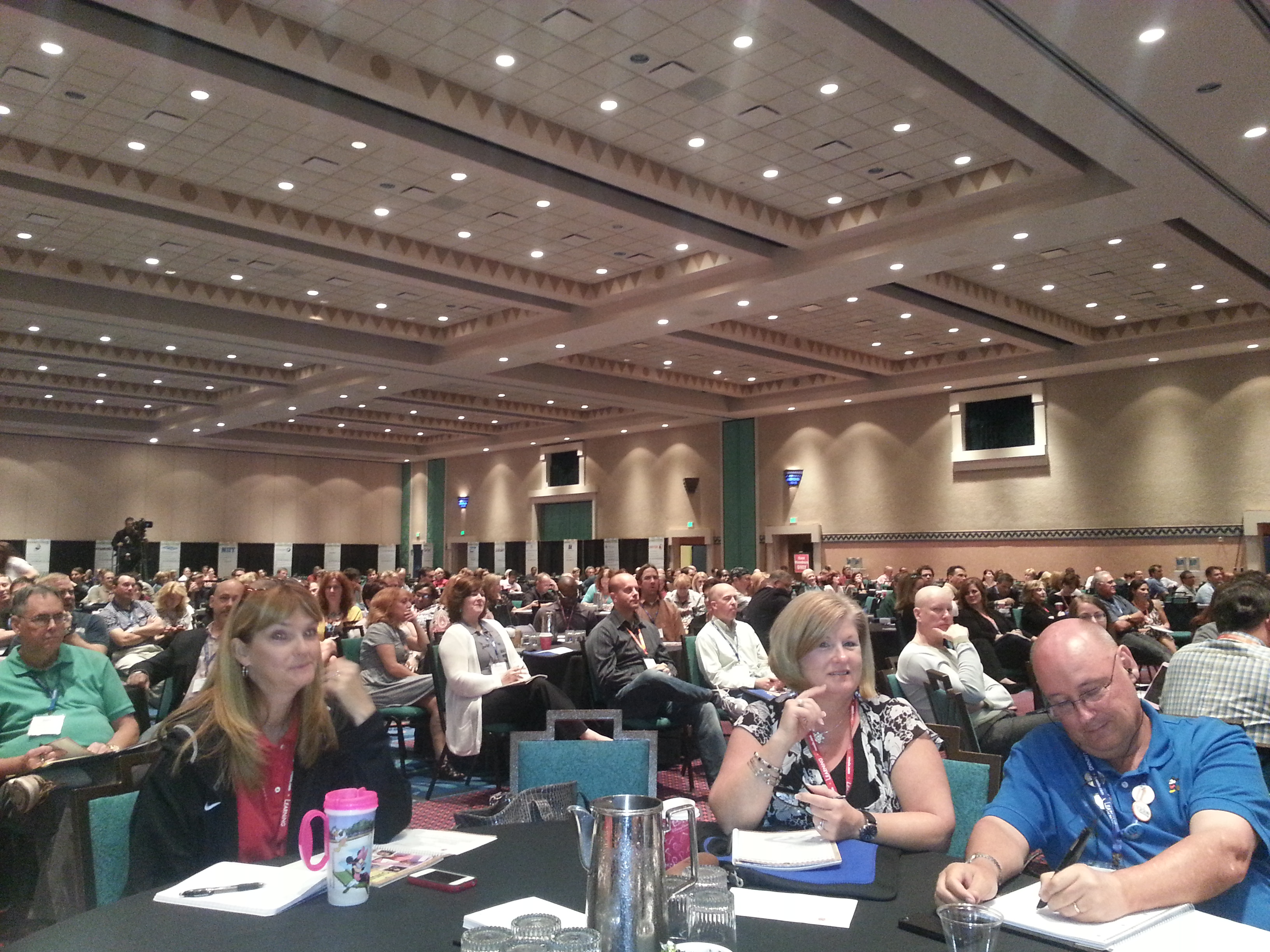
These few days I (and 1600 others) will be attending Elliott Masie’s Learning 2012. I will be hosting a session with Marcel de Leeuwe and will be blogging about what I see.
The opening evening started with Lisa Nicole Wilkerson singing Defying Gravity, one of the themes of the conference.
Masie then made a comparison between how we watch television nowadays (everything on-demand and personalized) and how we do learning today (not quite there yet). So one of the themes is personalized learning. Another challenge that he sees is what he calls the Learning Mix: mixing live events with on-demand events. One more theme is Learning Together (he doesn’t like the term “Social Learning”). In this domain Masie touched my heart by talking about SharePoint “as a technology without a methodology”. A final theme will be Learning Everywhere.
The first keynote speaker was Richard Culatta. I first met him at this conference in 2008 when he was still at the CIA and presenting in the “trenches” of the conference. His career has progressed and he was now on the main stage. A lot of the conversation was quite obvious (at least for me), but I liked the short discussion about how learners will necessarily become designers. Richard also made a plea for there to be more “edupreneurs” and has started a MOOC, Ed Startup 101, to help this process. I’d be curious to hear his thoughts about the debatable role of VC capital in the educational world (see here and here).
Elizabeth Bryant from Southwest Airlines came to pick up a “Spotlight” award. Elizabeth talked about the learning centralization journey at Southwest.
Masie has started a program titled 30 under Thirty. All 32 of them (don’t ask) came on stage and talked a little bit about what drives them. They will be doing “reverse mentoring” at the event. Interesting concept!
Jenny Zhu of ChinesePod fame came to talk about the Masie Asia Project. This seems to be Masie’s attempt at getting a foothold in the fast-growing learning market in the East. I like Zhu’s post on 10 Chinese words that don’t have an English equivalent.
Lisa Pedrogo from CNN got a Masie award a few years back for her work with video in the learning space. Elliott shot a little video of her. He apparently did not get the memo about how to shoot video with a phone (from here, with a thank you to Marcel de Leeuwe for sharing it with me):

Lisa discussed how we shouldn’t make video more difficult than it really is. You shouldn’t be scared of using it and you should just have fun.
The final speaker of the night was Rahul Varma, the Chief Learning Officer of Accenture. It is interesting to see that Accenture has chosen somebody based in the East to head up learning for them. This probably has to do with the fact that the country with the most of their employees is India. He also talked about what he termed the talent challenge: how the rate of talent development will not keep pace with the growth of the emerging markets.
Finally, one interesting element of the conference is the Real-Time track comprising 15% of the scheduled content at the conference. This is explicit time and space for people to organize their own events. I will try to visit at least one of these events to see if and how they are working.